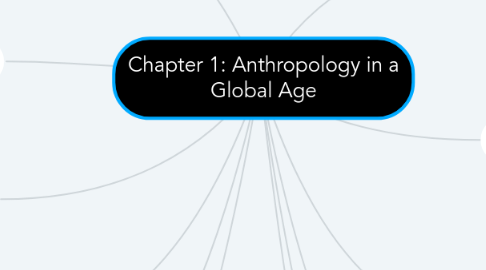Chapter 1: Anthropology in a Global Age
da Glenda Ancheta


1. Globalization: key dynamics
1.1. time-space compression
1.2. flexible accumulation
1.3. increasing migration
1.4. uneven development
2. Archaelogy
2.1. investigation of humans past
2.2. analyzing material remains
3. Prehistoric archaeology
3.1. reconstruct human behavior in past
3.2. artifacts such as clues
3.2.1. buildings
3.2.1.1. hunting grounds
3.2.1.1.1. campsites
4. Lingusistic anthropology
4.1. human language in past and present
4.2. languages
4.2.1. vibrant
4.2.1.1. complex
4.2.1.1.1. symbols
5. Participant observation
5.1. involving both participation in and observation of the daily life of people being studied
6. Anthropoence
6.1. ancestors struggled to adpat
6.1.1. heat/cold
6.1.2. disease
6.1.3. natural disasters
7. Four field approach
7.1. Holism
7.2. Physical anthropology
7.3. paleoanthropology
7.4. primatology
8. What is anthropology?
8.1. the study of human diversity, past, and present
8.2. the knowledge to help people of different back grounds to understand one another
8.3. ethnocentrism
8.3.1. ethnographic fieldwork
9. Historic archaeology
9.1. descriptive linguists
9.2. historic linguists
9.3. sociolinguists
10. Cultural anthropology
10.1. ethnology
10.2. study of peoples everyday lives and communities
10.2.1. behavior
10.2.1.1. beliefs
11. Globalization
11.1. money
11.2. people
11.3. goods
11.4. national borders
12. climate change
12.1. human activity
12.1.1. burning fuels
12.1.1.1. global warming
